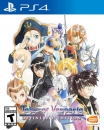RolStoppable said:
There's a lot of flawed logic necessary to arrive at your desired conclusion. 1. In your first paragraph you pretend that Wii's lifecycle is comparable in length to the N64, GC and Wii U, but it's actually similar to the SNES. Nintendo's failures sold next to nothing in their sixth full year, because their fifth full year already made it clear that the consoles are on their way out. You also use a comparison between third and sixth year to point out something unprecedented about the Wii, but you omit that Wii's third party support was also unprecedented for a console as successful as Wii. I've talked about the importance of a healthy software pipeline with you before and there shouldn't be an argument that Wii's software pipeline was horrendous from its fifth year onwards. 2. In your second and third paragraph you blame the failure of a follow-up console on the preceding console. That's like making the argument that the PS2 was Sony's worst home console and the PS3's sales and financials prove it. Your argument is like saying that the PS3 is not responsible for its own struggles and that those tough years for Sony were caused by the PS2. 3. The huge error that Nintendo made with the Wii U is that they turned their back on motion controls and returned to the conventional dual analog setup with the Wii U Gamepad. The market figures that games for any given console will be designed for its main controller and the Wii U didn't have a motion controller. Unsurprisingly, the Wii audience didn't want to migrate to the Wii U because of that. The core of the issue is that Nintendo stopped making games like they did for Wii aside from a few token efforts in hopes to trick people into buying a console that isn't at all like the Wii, but that didn't work. The Wii didn't stop going; Mario Kart Wii added yet another 100k copies to its total during the quarter January to March 2019 while Just Dance kept releasing each and every year, meaning that there was a new game release for Wii twelve years after its launch. If Nintendo ever releases a Wii Classic console like the NES and SNES Classic, it will sell very well because Wii's legacy is good. The same wouldn't hold true for Classic versions of the N64, GC and Wii U. The preferences posted in this thread have no real value as far as real world reputation of consoles is concerned. It has been a common theme since the beginning of VGC that preferences and sales of Nintendo consoles don't align. Since sales predictions are often influenced by personal preferences, it isn't surprising that a large group of Nintendo fans on VGC had higher lifetime sales expectations for Wii U than Switch prior to their respective launches. |
1. My point here was just that, Wii drop after 5-6th year was like nothing compared before, not even like N64 or GC, and definitively not like a console like SNES. According to that super interesting graph on Nintendo shipments (thanks for the info) SNES shipped 1'8M in Japan, 2'9M in USA and 800k in others, so around 5'5M total in its 6th year. SNES best year was its 3rd with 4'1M in Japan, 5'6M in USA and 2'4M in others for a total of 12'1M that year. That's basically around a 45% compared. Wii in its 3rd year summed 26M compared to 9'9M in its 6th year (based on the same graph) so around 38% compared to that year. That's already a huge difference, but SNES still sold fairly fine another 4 years more in NA, while Wii stopped production a year later worldwide. That's what i was comparing. NES, SNES, DS,... did indeed lasted way longer than Wii.
And yes, software for Wii after 2010 was horrendous indeed, but that's not a point in favor to Wii....That's why it sold so poorly in later years. The lack of the same 3rd party support Wii received its first years compared after year 5 or 6 is a clear hint of what the consumers tendecies were at the time.
2. My bad in expressing myself badly with this point. What i was trying to say is that N64 was basically replicating the success of the previous console during the first years and ended selling 67% of what SNES sold (because for whaterver reason, Japan didn't bought N64 consoles like with SNES). If it wasn't for the japanese market, N64 would've been similar in sales to SNES, so my point was that in the west N64 was not a failed console, it just looked bad compared to what Sony was doing with PS1. So, despite being beat by PS1 worldwide , its successor, Gamecube, still sold 22M next gen and most new franchises starting on N64 like Smash Bros, Mario Party or Animal Crossing grew a lot during that gen, even if the console itself sold less than N64. That wasn't the case with WiiU compared to Wii. WiiU sold almost a 1/10 of their predecessor and no franchise went to be considered better or sell better on WiiU. In respect of your use of PS2 and PS3, It benefits my point in fact. Both WiiU and PS3 had problems with its concept from the beginning but the PS3 ended selling way more than WiiU. My opinion on why??, loyal consumers satisfied with PS2 wanted more PS consoles, than Wii consumers wanted more Wii branded consoles. PS2 left a legacy for PS3 in the end in a way Wii wasn't capable for WiiU. Like you said, Wii last few years were awful software wise and it reflected in declining sales for Wii and lack of support from the masses for WiiU.
In conclussion, Nintendo home consoles, despite their succesful software sales have always been found difficulties to sell more than 50M, being Wii an aberration in the high end and WiiU in the low end. That's why Nintendo decided to go the Switch route (and why is working so good too).
3. I can't agree or disagree with your point here. Probably you're right, but we are just making opinions, and we can't prove any of our points being right.
4. I am not that sure that a Wii classic would be more succesful than a N64 classic. In this i definitively disagree with you. I think those classic console success are more based in their games than in the console itself. N64 as i stated, has way more classics than Wii in my opinion. I'm pretty sure N64 would have a better reception than Wii, but again, that's just my opinion.
5. Ok, i give you this, you surely have more knowledge than me regarding Nintendo threads here, but i have to say that i've seen similar comparisons between Wii and N64 or N64 and other consoles, and N64 always ended favorably voted compared to Wii, so that's why i said that.


























































